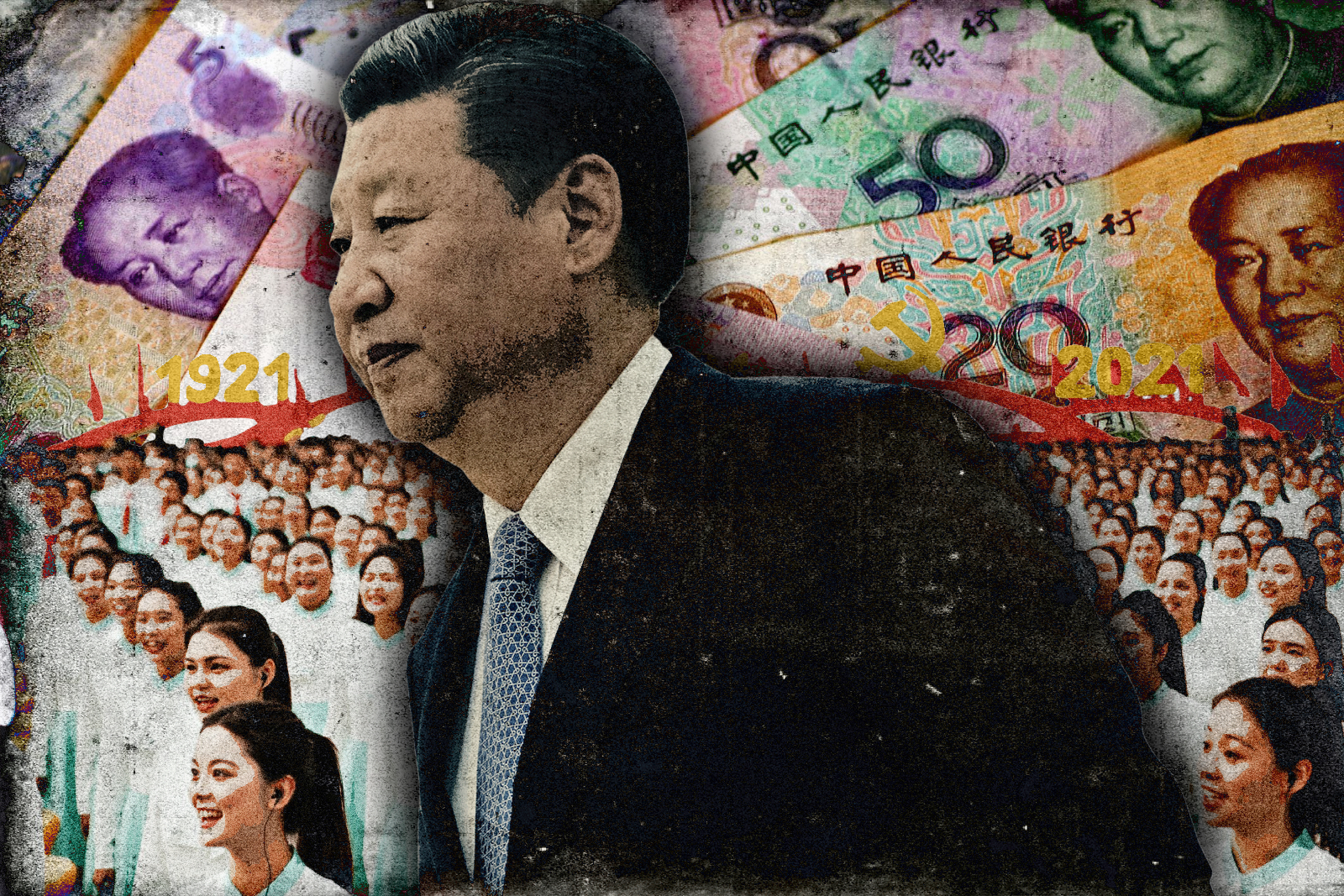
Why Xi Wants to Keep the Chinese People Poor
There are two types of countries that fall on the political spectrum: Democratic countries at the one end and authoritarian countries at the other. In democratic countries like the United States, politicians are incentivized to improve people’s lives because their political survival depends on it.
But, in an authoritarian system, such as China, the leader has to control the wealth of the people to prevent them from becoming too comfortable. If China becomes the dominant superpower in the world, which isn’t assured, it will give the Chinese people a feeling that their leader is much more capable than he actually is. As a result, the people could push him to expand China, leading to instability. Chinese President Xi Jinping will avoid this scenario at all costs.
China’s economy has been growing exponentially for years, but its GDP per capita remains relatively low. This is not because Xi cannot make the people richer but because he knows that if the people gain too much wealth, they will start to hunger for additional benefits like a free press or even an open Internet, a problem inherent in any authoritarian system.
Xi’s capitalization on COVID
With China’s zero-COVID policy that has shut down many large cities in China with populations many times larger than America’s largest urban centers, its economy slowed down significantly. The lockdown in Shanghai, one of China’s largest and most prosperous cities, truly shows how far Xi is willing to go to keep his power.
While Xi may claim that he simply wants to rid China of COVID, he knows this is a fool’s errand, given the continuous outbreaks of COVID. Therefore, the purpose of the lockdowns is to help him maintain power more effectively. With the people in lockdown, he can control them, and the people will have no choice but to listen to him. His actions in locking down cities also severely hamper economic growth, which makes it easier to temper people’s expectations and makes his job less challenging.
The Civil Air Defense program
China has invested a significant amount of money in its Civil Air Defense program. While these programs might have made some sense decades ago at the height of the Cold War, there is no reason for them to exist anymore.
Since developing nuclear weapons in the 1960s, China has made tremendous progress in ensuring a credible deterrent against any nuclear-armed states like Russia or the United States. Therefore, one would think that these massive shelters built under China’s major cities would be obsolete. However, in 2016, Xi promoted the construction of these shelters, despite having no reason to launch such costly and impractical projects. The design calls for supporting a city’s entire population underground for considerable durations, bringing the scale and expense into perspective.
Without any actual usefulness, the real purpose of these gigantic underground projects is to instill the bunker mentality during peacetime. When people feel the need for a bunker, they will be more receptive to instructions from the only one who can protect them from the outside world. If people have this mentality, they will think that they need their protector forever.
The demographics and history of China make it unique. In no other country can a ruler build massive underground cities that are so useless and expensive. But, because over 95% of the people in China are Han Chinese, Xi can predict with relative accuracy how most people will think. A homogeneous population is much easier to control than a diverse one. The consistency of the population, along with China’s history, makes it very effective for Xi to build these underground shelters and instill a “siege” mentality in his people.
The Belt and Road Initiative
In 2013, Xi launched the Belt and Road Initiative. While Xi has many reasons to continue and expand this program, such as more international prestige and influence, one of the main reasons is to allocate funds from China and use them elsewhere. When funds are outside of China, it does not make the Chinese people wealthier and does not contribute to China’s GDP.
At the same time, Xi generated a lot of support and popularity domestically and internationally. The Chinese people will think that Xi is expanding and increasing the power of their country, and foreign leaders will be thrilled that they get much-needed infrastructure dollars they otherwise would not have. From 2013-2020, China put about $4 trillion into its international “investments.” If this $4 trillion were spent inside China and used on the people, it would allow China to catch up to the United States much sooner. While the Chinese people would love to have money in their pockets, Xi knows that this can only lead to instability. Instead, by putting the money outside China, Xi can expand China’s global footprint and make his domestic subjects easier to manage.
As most of the Belt and Road projects in other countries are loans to build infrastructure in relatively impoverished nations, these countries usually cannot repay their loans to China. Therefore, China can lease the land there, expanding its territory. The Belt and Road Initiative empowers Xi both internationally and domestically without giving much to the average Chinese person.
How the Party circulates money
From 2012 to 2017, about 600,000 Chinese officials were disciplined for corruption. On the outside, it may seem like China is cracking down on corruption, but the government uses corruption to hide much of China’s wealth. In China, civil servants make between $80 and $800 per month, compared to the significantly higher national average of $1,300. Instead of receiving salaries in cash, civil servants are provided extra ‘perks’ (food, vacations, housing, etc.) from the government, making their actual wage more than double the average.
Because the government pays civil servants mostly in perks rather than cash, it is much more challenging to take this money outside the country. By keeping all the money inside China, they can exert significant control over it. The government hires people to be civil servants to collect taxes, then uses some of this tax money as perks to pay back these civil servants, essentially keeping the country stable while keeping the money in the government instead of the people.
In 2019, a video was released that showed over 13.5 tons of gold in a high-ranking party member’s home. This video is just one instance of the massive corruption inside China. All this “under-the-table” money that circulates throughout the Chinese Communist Party hides wealth from the outside and makes it extremely difficult to determine the status of corruption inside China. The 2019 Corruption Perceptions Index ranks China as the 80th most corrupt country in the world. While in all other parts of the world, more corruption leads to less economic growth, China is an outlier. Despite China’s relatively large ‘problem’ with corruption, they have some of the world’s highest GDP growth rates.
Xi Jinping’s policies reflect his only goal: keeping China stable with him at the helm. Xi Jinping’s zero-COVID policies, the enormous amounts of money that Xi is willing to spend on underground nuclear fallout shelters, and the Belt and Road Initiative reveal his limited desire to make his people wealthier or even happier. Xi Jinping’s methods to keep China stable are a very natural outcome of China’s unique system.
